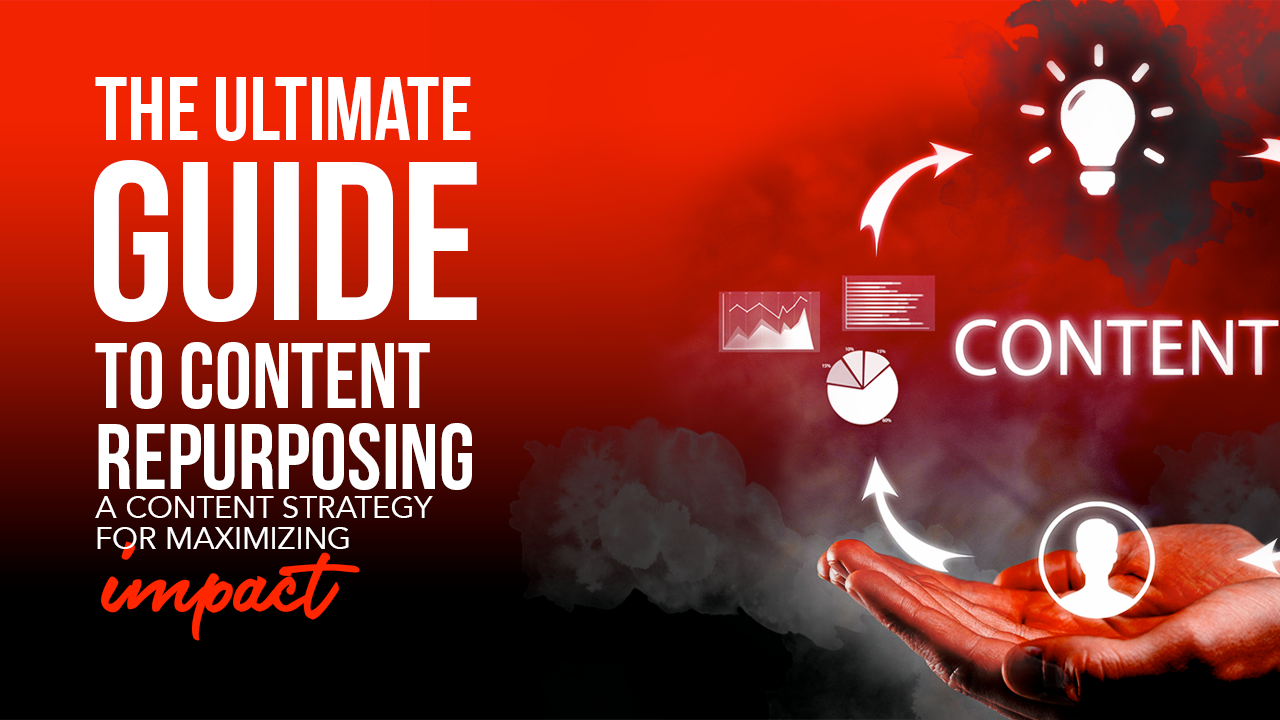Your Business Will Not Grow Unless You Have a 21st Century Sales Process
“It is not the beauty of a building you should look at; its the construction of the foundation that will stand the test of time.” – David Allan Coe
Imagine that you are building a house, where would you go to have it built? Would you go and buy a piece of land and then head straight to Home Depot? Would you and your friends who have no background in carpentry or real estate development get down and dirty with hammers and nails? My guess is that you would likely go to a builder. One who can show to you different model homes and provide to you many specifications on master bathrooms and window bays. So why do we have so many business owners trying to create consistent sales on their own? B2B sales often means a complex sale. A complex sale is a process that demands a lot of time, deliverables, decision makers, and conflicting interests. Why is it so common for a business owner who has put so much time into building her product or service to feel the need to also be in charge of the sales department when they have no to little sales background?
When the dollars start to come in, the business owner will typically hire an accounting firm. When employees need to be hired beyond just a few people, the owner will typically hire a human resources professional. When the company exceeds a certain size, the owner can no longer be in charge of their IT systems and typically hire an engineer or IT manager.
When it comes to sales, the owner typically feels less comfortable hiring sales professionals until a certain point.
Why is this? The answer is very simple. There is a lack of trust in the sales person by the owner. Whether you hire a VP of Sales or a sales manager or a sales executive, you likely to not trust this person or persons to carry out your mission. This is very understandable. This is your business and your product or service and hence it is your baby. Therefore, you do not trust someone else to be able to replicate your knowledge, expertise, and passion that you have.
Why is this? The answer is very simple. There is a lack of trust in the sales person by the owner. Whether you hire a VP of Sales or a sales manager or a sales executive, you likely to not trust this person or persons to carry out your mission. This is very understandable. This is your business and your product or service and hence it is your baby. Therefore, you do not trust someone else to be able to replicate your knowledge, expertise, and passion that you have.
The lack of trust is a major problem, however. This is because what you likely do not realize is that the prototype of the average high performing B2B sales person has changed very quickly. The skills, demonstrated qualities and new intelligence needed to be a successful B2B sales person are very demanding, likely too demanding for an eager business owner like you to be the face of your sales efforts when you need to focus on many other things. If you want your business to scale beyond where it is now, you must get out of your own way and hire a professional who can build for you a solid foundation to boost all of your revenues moving forward a sales process.
The quote above from David Allen Coe represents the serious part of the book that you are about to read. But first, let’s have some fun and read some quotes below which represent how sales used to be.
“ Put that coffee down!! Coffee’s for closers only.” – Blake, GlenGary Glen Ross
“Your name is “you’re wanting”, and you can’t play the man’s game, you can’t close them, and then tell your wife your troubles.” – Blake, GlenGary Glen Ross
“And there is no such thing as a no sale call. A sale is made on every call you make. Either you sell the client some stock or he sells you a reason he can’t. Either way a sale is made, the only question is who is gonna close? You or him? Now be relentless, that’s it, I’m done.” – Jim Young, Boiler Room
The above three quotes represent how most people have viewed the Sales process for years. They represent the very reason why business owners today typically wait too long to hire sales help. There is a vision that a company’s sales are generated by an attitude of brash confidence, endless persistence, and intimidation by superiors. Although these thoughts make for good laughs and they may work at automobile lots, the world of complex Business to business (B2B) sales may as well be in the different galaxy. If you bring the attitude represented in one of the film quotes above into a complex business to business sale, you may as well take a knife to a gunfight.
The funny but unfortunate thing, however, is that too many owners of complex businesses run and treat their sales processes with these silly views. As funny as this may seem, it is not funny at all. This is a major problem for the many complex businesses out there that are squandering millions of dollars and running through countless sales reps all while their hair goes from brown to gray to white pretty quickly.
Common business owners failures when it comes to sales strategies
We then typically see a process of a business owner waiting way too long to hire sales help and then when they finally do hire the help, they establish a haphazard, adrenaline-fueled, dated sales culture. They fail to establish a sales process. They take a set it and forget it approach and let the salespeople largely do what they need to do to close business. From speaking to hundreds of business owners in the past year, I can tell you that this disorganized approach is implemented over and over again and it does not end well.
The world of complex B2B sales is not an art, it is a science. It is the world full of long, complex sales cycles, an overabundance of decision makers all with different interests and opinions, and a whole host of specific needs. B2B sales often require large marketing budgets, a significant trade show presence, and most importantly a big investment in sales training. There are many companies and there will continue to be many companies who will try to cut corners and avoid facing these facts. Don’t worry. You don’t need to be a Fortune 1000 company to implement a sales process. The primary purpose of this book is to educate small and mid-market business owners on how sales have changed and how to build a rock-solid sales foundation on a low budget.
B2B Complex Sales
B2B complex sales take a major amount time, investment and work. If you want to succeed in this arena and become a thriving business, you must surround yourself with people who are willing to sacrifice their blood, sweat, and tears. More importantly, one needs to do whatever it takes to get it right. The good news is that because many companies have been in the trenches before you, lost many soldiers to battle and learned lessons, you can simply learn from their mistakes and their successes alike.
Furthermore, we are now in the Post Web 2.0 era. What does this mean for sales? It means that the fight has become even more easy to understand. The rise of the web and social media have equipped complex B2B buyers with more information than ever before. A buyer now comes to the table meeting the sales representative for the first time already knowing more than seventy percent of what they will learn. In this era, it is even more important that we as sales organizations are even more organized, more well versed, agiler and more prepared than ever before.
Modern Complex B2B sales is an uphill climb. However, there is an easy path to success in this market and to perform at an elite level. This path is to create a Sales Process. If you create and maintain a strong sales process you will have a strong foundation for success for years to come and you will far outperform your counterparts. The sales people that you hire will not be slick big talkers but rather numbers oriented, the nerd like consultants who follow the path that the metrics tell them to.
 A sales process in the twenty-first century consists of three main components: a strategy, a system, and metrics.
A sales process in the twenty-first century consists of three main components: a strategy, a system, and metrics.
It is this simple. A sales strategy in the 21st century goes way beyond simply setting your sales targets. You as the business owner or operator must be in full alignment with your sales people and in frequent communication on the existing plan to increase your market share. All too often, company heads hire sales people and try the “Set it and forget it” strategy by then closing the hood of the car and not being involved in the sales process at all. This is a recipe for disaster as you are the business owner and hence the expert. Therefore your experience, your understanding of your industry’s complexity and your passion for what your company does need to be fully involved with the sales efforts of the company.
“I have always said that everyone is in sales. Maybe you don’t hold the title of salesperson, but if the business you are in requires you to deal with people, you, my friend, are in sales.” – Zig Ziglar
Simultaneously, while the business owner should be heavily involved in mapping strategy and in mapping out the sales efforts, the business owner should not dominate and box in their sales people. There is a reason why you hired your sales people. You hired them so you don’t have to focus as much on selling. Therefore, you must rid of your ego and make time to make sure that the sales people having a deep understanding and passion for what it is that makes your product or service worth being sold.
Most importantly, your sales strategy must come from the right place. There are many terrible reasons for wanting to create a sales strategy and scale your efforts. It may be the case that you should not even consider increasing your sales efforts at all. There are many boxes that need to be checked in your business before you begin to sell your product to the market. It is perfectly fine to be a company that only accepts referrals from companies in need. Of course the entire reason why sales strategies and sales teams exist is that most businesses do not have the luxury of having endless inbound leads.
A robust sales strategy includes more than just a plan of attack and what markets to target.
Successful complex B2B sales leaders not only act as a partner to their sales team, they are in charge of consistently measuring what works and what doesn’t and making the appropriate adjustments. One of the most important components of building the sales strategy is choosing the appropriate sales system.
There are many sales systems to choose from. Many of these systems work very well as far as training a sales force and in generating a ROI for your company. However, it is important to know that not all sales systems are for all companies. One of the biggest pitfalls that takes place is a business owner will speak to a sales consultant who claims that they know everything and that everything takes place in a certain way. Well the problem with this is that most of the time, this very sales consultant will be representing a single sales system. Why is this such a problem? Because not all systems are for all businesses and all industries. If you choose the wrong sales system for your business you can potentially waste months, years and capital at a very fast burn rate. Choosing the right sales system for your business is so critical.

So if I should not speak to a typical sales consultant, then who should I speak to?
I will not know which system to choose if I am not a career sales person. Great point. For this very reason, you must speak not to a Sales coach but yet to a Sales Process expert. A Sales Process expert will help you build everything from your strategy to your team and help you map out how you will get there. The Sales Process expert will choose the right sales system, the right CRM and help you implement the right standards to measure your success.
As I mentioned about one of the biggest shifts in the B2B landscape in recent years is that sales have become a science and it is no longer an art.
The sales profession in complex B2B transactions is about measuring goals and the elements needed to attain those goals.
For example, twenty years ago a CEO or a VP of Sales for a printing company would have sales strategies such as these:
-
We will hit our number this quarter if we invite twice as many prospects to our golf outing every weekend.
-
We will hit our number this quarter if we can get tickets to the Ranger game from these very special and important clients.
-
We will close twice as many deals if we launch our end of the quarter 20% discount promotion three weeks before the quarter close. We must then call every single client and offer to them this promotion.
-
Our top guys and gals must fly cross country and visit these people and take them out to a steak dinner.
Sales was an art at one time.
It was a game for relationship builders, chronic networkers, and road warriors. Conversations primarily centered on what the company can do for the client and how much of a discount that client could get. This was the case all the way up until the rise of the Web 2.0 era where now the buyer comes to the first conversation and knows more about the offering than ever before. The increase in the buyer’s knowledge has decreased the effectiveness of a relationship. The prospect no longer needs to be taught about your product or service. The client will no longer accept the bribe of Broadway tickets and sushi to have to listen to your pitch and spiel. Artistic manipulation has been largely flushed out of complex B2B sales by the rise of the internet.
Sales is now a science.
It is therefore important for a sales strategy to focus on making their sales representatives be experts in their field, to follow a strict sales system and to understand how to benchmark their efforts with data and analytics. Below are some of the things that a Software as a Service or Technology CEO or sales manager will say in 2017 about hitting the team’s sales goals.
-
Our data shows that if we create three opportunities per rep per week and if our average closing rate is 50% per rep we will increase revenues by 30% from quarter to quarter.
-
Your lead generation rate with appointments/calls is strong Bob at 15%. However, your appointment to proposal rate is only 20% which could mean either one of two things: you are not qualifying your prospects strongly enough or there is something wrong with your pitches.
-
Sara, In reviewing your notes, you only obtained five of the seven points needed to qualify the prospect fully. As you know we have a requirement of six to be able to move forward with a meeting. We, therefore, are not able to have this meeting.
-
Pardot has scored this list of leads at an 80 or above. I will give this to Jake, my top salesperson.
You can view the difference in pre- Web 2.0 sales and post. Furthermore, the head of the business or the head of the sales division should know metrics and numbers as listed in the examples above in the same way that they know their financials.
“If you have to forecast, forecast often.” – Edgar Fiedler
Wait! What? Why would the leader of a business or their main sales lieutenant need to know such details as the ratio of opportunities to sales and appointments to sales? Easy. The financial statements show the current and past revenues of the business. This is great. Do you know what the pre-sales metrics show? The future revenues of the business and their legitimacy.
Sales forecasting is the key to what is going to get you as a business owner paid. Do you want to exit at some point and sell the company? Do you want to pass a clean, healthy business down to your kids? I bet that you said yes to one of these two questions. It is not enough to know what your revenues have traditionally done. It is not enough to know that your revenues are coming in due to receiving verbal commitments from a few companies. A business owner must know the health and accuracy of a sales pipeline. Without this information, your projections may as well be dust.
In the 21st century, a business simply can not grow and scale by following dated sales practices. We live in an era of analytics and have too much information at our fingertips to not frame our sales efforts based on the buyer’s behavior. A robust sales process with the right strategy, the most appropriate sales system and adequate means of measurement are essential for businesses of all sizes to succeed.
About The Author
 Tom Mckeown has over a decade of complex B2B sales experience primarily in the technology and finance industries. Tom co-founded two companies that each grossed over $1 million in revenues. Tom’s investment banking and business background make him unique in that he is a seasoned sales professional with an analytical mindset. Tom is currently the Head of Sales Science. Tom helps build full-scale sales processes for small companies in the complex B2B sales space. Tom likes to call this your sales machine which includes everything from creating a robust market penetration strategy to building your pitch to identifying the right sales system and numerical indicators to track pipeline health to making your first sales hire.
Tom Mckeown has over a decade of complex B2B sales experience primarily in the technology and finance industries. Tom co-founded two companies that each grossed over $1 million in revenues. Tom’s investment banking and business background make him unique in that he is a seasoned sales professional with an analytical mindset. Tom is currently the Head of Sales Science. Tom helps build full-scale sales processes for small companies in the complex B2B sales space. Tom likes to call this your sales machine which includes everything from creating a robust market penetration strategy to building your pitch to identifying the right sales system and numerical indicators to track pipeline health to making your first sales hire.
Click here to book a complimentary sales process assessment with Tom.









